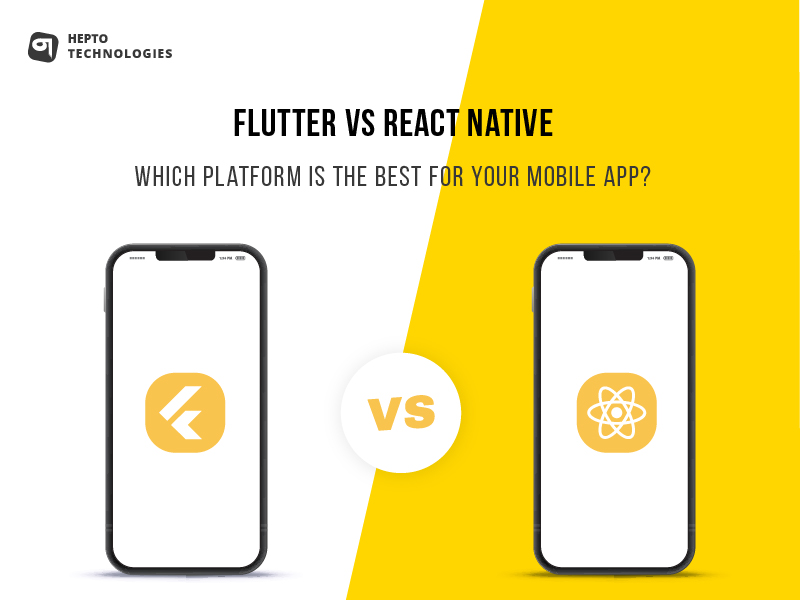Flutter vs React Native - Which platform is the best for your mobile app?
The phenomenon of mobile apps dramatically affected the world of development and the creation of mobile apps requires new app development solutions that are less time and effort-consuming. In this digital world, there is a great urgency for businesses to carve out space for themselves in the mobile phones of their users. Every business owner wants to create a quick mobile app for their business in order to offer a comprehensive and customized solution to individual customers. Creating a native app on Android and iOS for your business is quite time-consuming, and hence, cost-intensive so cross-platform mobile app development has gained momentum.
Cross-platform mobile app development is faster and aims at creating a single application written in a single programming language that runs identically on several platforms. It is the practice of developing software services for multiple platforms that allow your product to run on multiple mobile operating systems. When the code for a mobile app is ready, it goes through a middleware that translates it into the native APIs of iOS or Android. There are so many different options for cross-platform mobile app development and different frameworks offer different features and advantages for efficient cross-platform mobile app development. In this blog, we are going to discuss the detailed comparison between the two most popular cross-platform frameworks - Flutter and React Native.
Flutter:
Flutter is an interface-building open-source framework by Google that builds, tests, and deploys multi-platform applications including mobile, web, and desktop all from a single codebase that uses Dart which is a fast, object-oriented programming language. Flutter apps have a great look and feel because it is a comprehensive framework that comes with widgets and tools that are fast, attractive, and customizable.
Key Aspects of Flutter:
Every cross-platform framework can perform some things and offers some features to build app development. Flutter is a bit different and has numerous advantages over its competitors. Let's take a look at what makes Flutter app development better than other frameworks and why businesses should use it for their mobile app development.
- One codebase for all platforms
- Faster code development
- Rich libraries
- Enormous UI customization potential
- Increased time-to-market speed
- Fast testing with hot reload
React Native:
React Native is another popular cross-platforming framework developed by Facebook known for its fast app development time and access to third-party UI libraries with ready-to-use components that allow saving time during the app development. React Native developing mobile apps using JavaScript language and building applications for iOS and Android platforms with a single code base.
Key Aspects of React Native:
React Native has numerous advantages over its competitors. Let's move on to the advantages of React Native app development better than other frameworks and why businesses should use it for their mobile app development.
- Code Reusability
- Declarative UI
- Live Reload
- Third-Party Plugins
- Cost-Efficiency
- Large Community Support
To Wrap Up:
Flutter and React Native has been making waves in mobile development in the world for the past few years. The cross-platform nature of both Flutter and React Native reduces time-to-market and their third-party libraries and ready-to-use components make both platforms more efficient to use to build your app. Both Flutter and React Native offer more than just speedy development, they can reduce project costs as well so it is best to consider each on its own merits while keeping in mind what would be the most suitable for your app. We sincerely hope this blog will help you make a decision about your app development.
